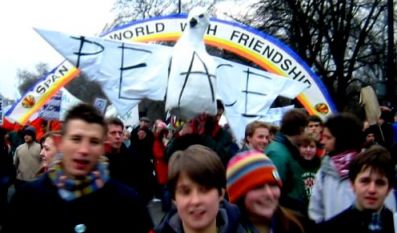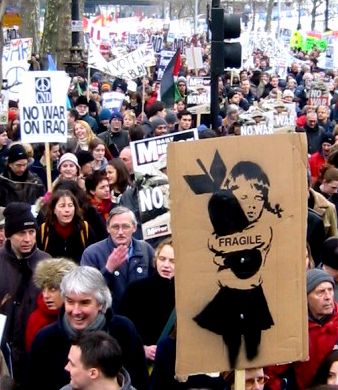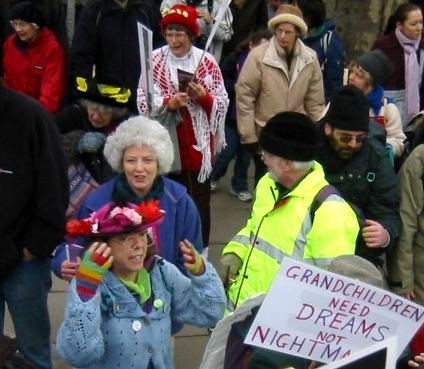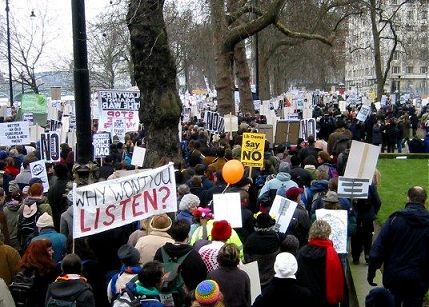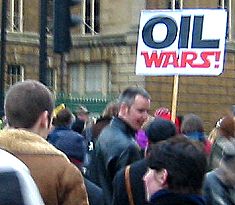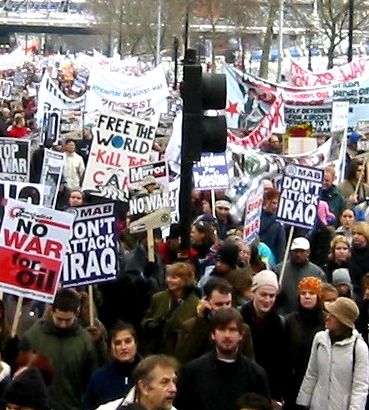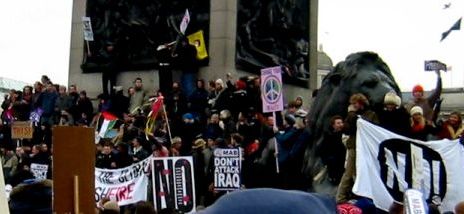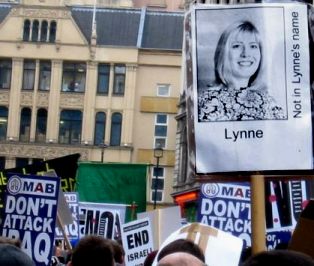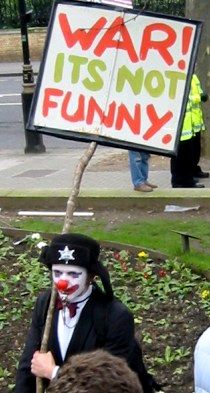Marching for Peace |
Against
War on Iraq
February 2003 |
|
|
On Saturday the 15th of February 2003, London saw its biggest ever political demonstration as around two million people - that's about one in thirty of the people in Britain - turned out to protest against the planned war on Iraq. Tens of thousands more attended the parallel demonstrations going on in Glasgow, Cardiff, Belfast and elsewhere in the UK, while somewhere between five and thirty million more (!) stood up to make their voices heard at protests in 600 other towns and cities in 60 countries throughout every continent. Barcelona and Rome, like London, saw their biggest ever marches, with more than a million each, and millions more marched around Europe; Sydney and Melbourne both saw their biggest ever peace marches, with hundreds of thousands each; New York saw something close to a million despite a court order banning it from taking place, while smaller protests took place in almost a hundred locations up and down the US. San Francisco's demonstrations the next day also managed several hundred thousand people. The London march dwarfed anything the capital has seen in the way of mass protest, with several times as many people as either the second of the year's big marches against the war in Afghanistan or the pro-fox-hunting, pro-Country Life Countryside Alliance march which preceded it, both of which had something in the region of 400,000 attendees. The biggest of the CND rallies only managed 400,000, or 250,000 if you take the police figure; the Poll Tax demonstrations managed maybe 300,000 at their peak. The crowd gathered to march at two main starting points, the Embankment and Gower Street, and ended up in Hyde Park. Long before I had even reached Embankment, the streets thronged with marchers, stretching out for miles ahead in the general direction of Hyde Park, taking in the Houses of Parliament and Trafalgar Square on the way. The atmosphere was generally peaceful and friendly; seeing so many people turn up helped put everyone in a good mood, I guess, and most people seem to understand that peace is important when what you're demonstrating against is war. An extraordinarily diverse group, the protesters came from almost every imaginable background - from first-time demonstrators to people who have already dedicated decades of their lives to political activism; from young Arab Muslims to white middle-class grandmothers; from old trade-unionists and anarchist groups to people who have never been affiliated with any organisation bigger than their local golf club. It is hard to guess how much difference the demonstrations are likely to make; Britain's New Labour government are certainly well-practised in ignoring massive displays of public dissent, but perhaps the sheer, stunning, unprecedented scale of this one will at least give them pause for thought, especially when opinion polls are suggesting that most of the population opposes a war even if the UN agrees to it, and the Labour Party itself is deeply divided on the issue. The marches worldwide provided a valuable reminder that however easy it might be for the news media to paint the leaders of France, Germany and so on as 'isolated' when they disagree with the United States and Britain in the UN, the truth is that they have the bulk of world opinion on their side.
This
piece also appears here,
|

